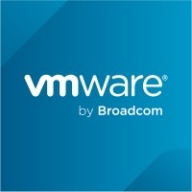

VMware Carbon Black Endpoint and Deep Instinct Prevention Platform compete in the endpoint security category. VMware Carbon Black Endpoint appears to have the upper hand with its comprehensive threat detection and response capabilities, ease of deployment, and cost-effectiveness.
Features: VMware Carbon Black Endpoint is known for advanced threat detection, granular policy controls, and detailed threat intelligence. Deep Instinct Prevention Platform stands out for its deep learning-based prevention, effective malware detection, and high accuracy.
Room for Improvement: Feedback for VMware Carbon Black Endpoint suggests performance optimization, reduction in false positives, and better integration with other security tools. Users recommend Deep Instinct Prevention Platform improve integration with other security tools, user configurability, and customization options.
Ease of Deployment and Customer Service: VMware Carbon Black Endpoint users report a smooth deployment process supported by helpful customer service. Deep Instinct Prevention Platform is easy to implement but requires a learning curve, with efficient customer support.
Pricing and ROI: VMware Carbon Black Endpoint is viewed as cost-effective, delivering good ROI with scalable pricing. Deep Instinct Prevention Platform is considered more expensive but worth the investment for its advanced features.
The support needs to be more granular, and perhaps they can consider using AI to help us ask questions instead of searching for specific keywords.
Technical support from Deep Instinct Prevention Platform is fantastic.
Regarding the technical support of Broadcom, they are responsive and helpful.
The biggest customer has 50,000 instances, so it scales very well.
Deep Instinct Prevention Platform detects malicious scripts but it needs better measures, perhaps signing scripts, so we can be sure that a script is created by a client, not by some malware.
The licensing is very competitively priced, better than all other solutions.
It is about the same price as any other antivirus.
Deep Instinct Prevention Platform does handle zero-day threats with minimal system impact in my organization.
I assess VMware Carbon Black Endpoint's machine learning capabilities in detecting unknown threats as fantastic.
| Product | Market Share (%) |
|---|---|
| Deep Instinct Prevention Platform | 0.9% |
| VMware Carbon Black Endpoint | 1.8% |
| Other | 97.3% |

| Company Size | Count |
|---|---|
| Small Business | 11 |
| Midsize Enterprise | 4 |
| Large Enterprise | 5 |
| Company Size | Count |
|---|---|
| Small Business | 31 |
| Midsize Enterprise | 9 |
| Large Enterprise | 31 |
Deep Instinct PREVENTS >99% of UNKNOWN threats like ransomware and zero-days before they land inside your environment – not after. With both an agentless and agent-based approach, we ensure file-based and fileless attacks are prevented. To achieve this, Deep Instinct is pioneering the use of deep learning AI to prevent threats in <20ms, without requiring calls to the cloud for threat intelligence. Our ability to scale to the needs of the enterprise is unprecedented as is our delivery of the industry’s lowest false positive rate of <0.1%.
The Deep Instinct Prevention Platform combines industry-leading static analysis based on the only deep learning framework dedicated to cybersecurity and includes two solutions:
To learn more, visit: https://www.deepinstinct.com.
VMware Carbon Black Endpoint enhances endpoint security with its robust EDR, threat detection, and live response features. The cloud-based architecture supports remote management and easy setup while behavioral monitoring and dynamic grouping minimize security risks.
VMware Carbon Black Endpoint is designed for those seeking comprehensive endpoint protection. With its cloud-based deployment, organizations experience streamlined remote control and simplified rollout processes. Its behavioral monitoring, incident response capabilities, and firewall integration deliver advanced security measures. Although it addresses many security challenges, areas like manual alert management, on-demand scanning, and integration with systems like AlienVault USM require refinement. Improved UI, EDR components, and flexible pricing models would enhance user satisfaction. On-premise deployment infrastructure and compatibility issues with some operating systems need attention. Enhanced reporting, container security, and multi-tenancy support are also essential for fulfilling industry needs. AI-driven analysis and threat isolation empower companies by fostering proactive management.
What are the key features of VMware Carbon Black Endpoint?
What benefits should users look for when evaluating VMware Carbon Black Endpoint?
VMware Carbon Black Endpoint finds extensive application in industries focused on stringent security requirements. Managed security service providers leverage its capabilities to deliver comprehensive protection to multiple clients worldwide. Organizations use it primarily for antivirus protection and incident management, integrating it with their existing security frameworks to strengthen endpoint visibility and real-time threat prevention. Its advanced detection and application control features make it a preferred choice in industries that prioritize robust security measures. However, it requires improvements in terms of system compatibility and customization flexibility to better serve diverse industry environments.
We monitor all Endpoint Protection Platform (EPP) reviews to prevent fraudulent reviews and keep review quality high. We do not post reviews by company employees or direct competitors. We validate each review for authenticity via cross-reference with LinkedIn, and personal follow-up with the reviewer when necessary.